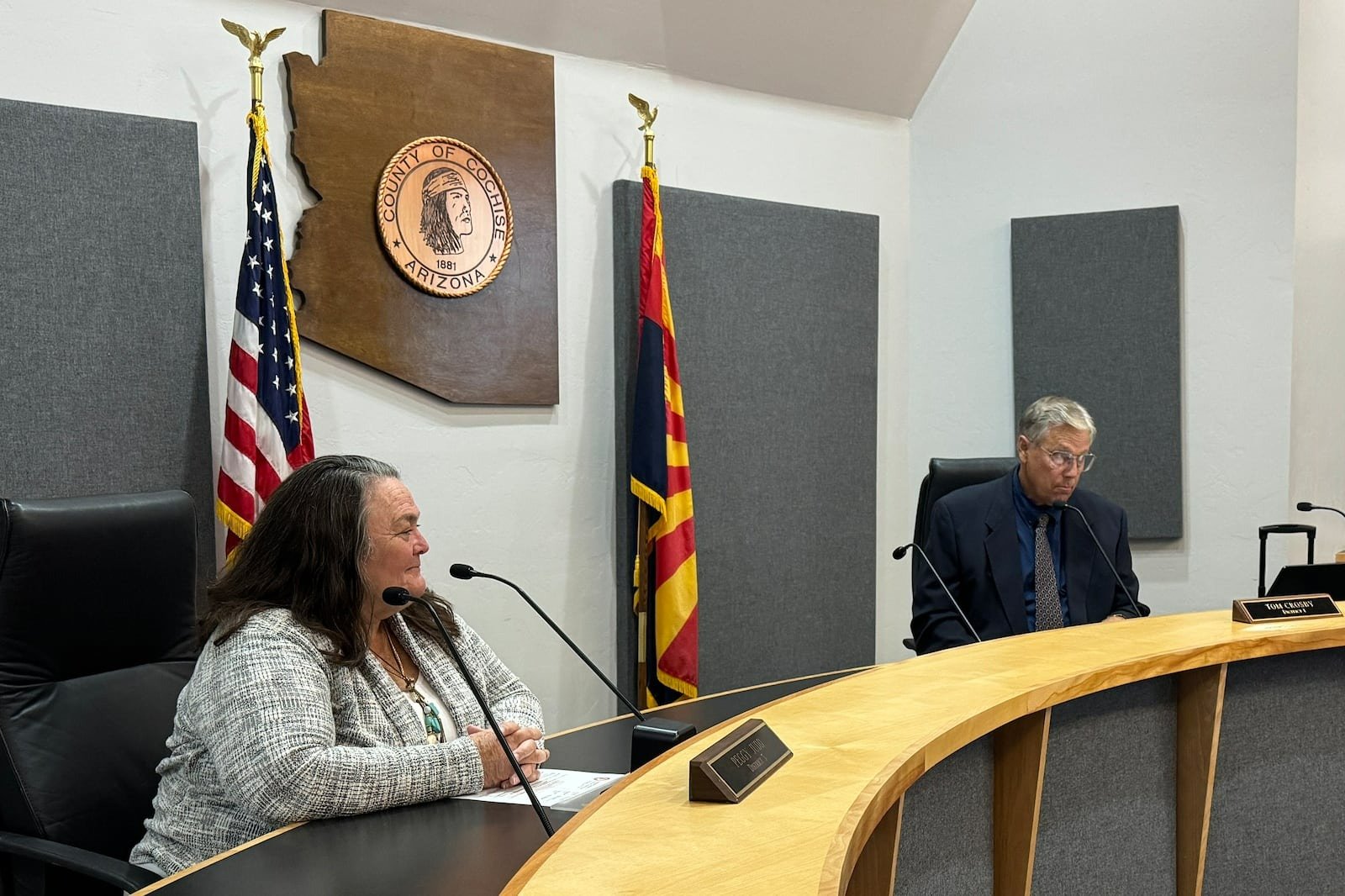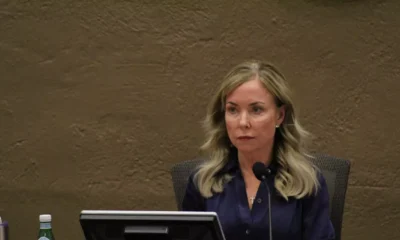2022 election
Cochise County Certifies Election: Peggy Judd Reflects on the Vote That Changed Everything

WILLCOX, Ariz. — Peggy Judd faced a pivotal moment on Wednesday as she voted on the certification of Cochise County’s presidential election results. A Republican supervisor, Judd had no choice but to affirm this decision, a requirement that came not only from legal obligations but also the terms of her recent plea agreement, following her actions two years earlier.
In 2022, Judd, alongside another Republican supervisor, opted to delay certification of the midterm elections past the legal deadline. This decision made her a controversial figure among local Republican officials, initiating a sequence of events that would drastically alter her career and community standing.
The fallout from that decision still reverberates through Cochise County, a rural area grappling with unrest prompted by Judd’s earlier refusal to certify. Subsequent investigations by State Attorney General Kris Mayes led to felony charges against her and Supervisor Tom Crosby, citing conspiracy and interference with election processes.
Initially, Judd resisted the charges, accumulating $70,000 in legal fees. She received some financial support, including a notable $5,000 contribution from MyPillow CEO Mike Lindell, known for promoting unfounded election fraud theories. Despite the calls for support from GOP supporters, she increasingly felt isolated, shouldering much of the burden alone.
At 62, Judd recently accepted a plea agreement that acknowledged her failure to execute her certification duties as mandated by law. As a result, she was sentenced to 90 days of unsupervised probation, realizing that failing to certify this election on time could result in incarceration.
Crosby remains in the legal fight, having pleaded not guilty with a trial scheduled for January. Meanwhile, Judd, on the cusp of exiting her public role, is preparing to sell her house to assist with outstanding legal obligations, moving in with her mother.
Reflecting on her experience, Judd feels a sense of betrayal by the local Republican Party, which she claims has turned against her. After years of active participation and support for the party, she now contemplates leaving it entirely due to her perceived ostracization and dissatisfaction with how she was treated after opposing party lines regarding election integrity.
“When I was compliant, they were very kind to me. But the moment I expressed doubt, everything changed,” she noted, emphasizing her plans to unregister as a Republican.
As she sat in a local pizza restaurant the day before casting her vote to certify, Judd was tormented by thoughts of the procedural errors made during the balloting process. Despite acknowledging serious issues during the election count, she ultimately judged that these discrepancies did not affect the outcome.
“I’ve always believed Cochise County’s elections were fair. I just wanted to ensure that before voting yes, I could affirm that we could trust these results,” she explained.
Prior to her controversial decision in 2022, Judd was embroiled in arguments regarding how the county should handle elections, often pushing for a hand count of ballots despite judicial blocks ruling such actions illegal. Her actions led to public outcry and complications with her colleagues over transparency and accountability.
Judd’s earlier controversies had cast a shadow over her legacy as a public servant dedicated to her community. Among her peers, opinions varied. While some viewed her actions as misguided, others felt she had acted in the community’s best interests.
Conversations surrounding her election decisions revealed deeper concerns about accountability. Fellow Supervisor Ann English criticized the plea agreement as insufficient, insisting that the gravity of the violations warranted greater consequences. Judd, however, refuted such claims about her compliance with laws governing public meetings.
The investigation’s trajectory highlighted Judd’s shifting political landscape. Once a figure in a thriving local GOP, her transformation has prompted her to reconsider her identity following her husband’s health struggles and subsequent passing earlier this year.
As the certification day dawned, Judd entered a nearly empty meeting room, faced with the responsibility of enacting the legalities she once contested. With thorough reports outlining previous election issues provided, the board voted unanimously to certify, a moment that elicited a sense of relief from Judd.
“Yay! It feels like we should have confetti or something,” she remarked, signaling the end of a tumultuous chapter.


















